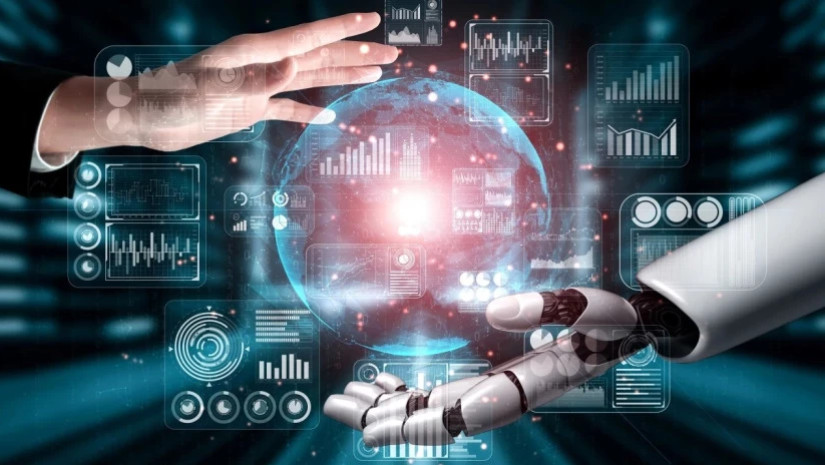New research from IDC entitled, The Global Impact of Artificial Intelligence on the Economy and Jobs, predicts that business spending to adopt artificial intelligence (AI), to use AI in existing business operations, and to deliver better products/services to business and consumer customers will have a cumulative global economic impact of $19.9 trillion through 2030 and drive 3.5% of global GDP in 2030. As a result, AI will affect jobs across every region of the world, impacting industries like contact center operations, translation, accounting, and machinery inspection. Helping to trigger this shift are business leaders who almost unanimously, 98%, view AI as a priority for their organizations.
According to the research, in 2030, every new dollar spent on business-related AI solutions and services will generate $4.60 into the global economy, in terms of indirect and induced effects. This is determined by:
Increased spending on AI solutions and services driven by accelerated AI adoption
Economic stimulus among AI adopters, seeing benefits in terms of increased production and new revenue streams
Impact along the whole AI providers supply chain, increasing revenue for the providers of essential supplies to AI solutions and services providers
"In 2024, AI entered a phase of accelerated development and deployment defined by widespread integration that's led to a surge in enterprise investments aimed at significantly optimizing operational costs and timelines," said Lapo Fioretti, senior research analyst, Emerging Technologies and Macroeconomics, IDC. "By automating routine tasks and unlocking new efficiencies, AI will have profound economic consequences, reshaping industries, creating new markets, and altering the competitive landscape."
The majority of respondents to IDC's Future of Work Employees Survey expect some (48%) or most (15%) parts of their work to be automated by AI and other tech over the next two years, while only a minority (3%) of employees expect their jobs to be fully automated by AI.
While some work will be negatively impacted by the proliferation of AI, new positions such as AI Ethics Specialists and AI Prompt Engineers will emerge as dedicated roles within global organizations.
The research further indicates that a "human touch intensity," combined with the level of "task repetitiveness" by which each job is characterized, will inform organizations about roles that are subject to a full AI and automation replacement, versus those where tech's role will be to augment human capabilities. As such, positions where human social and emotional capabilities are critical, such as nursing and roles where decision-making encompasses ethics and comprehension beyond numbers will remain robust.
The IDC report, The Global Impact of Artificial Intelligence on the Economy and Jobs: AI will Steer 3.5% of GDP in 2030 (Doc #US51057924), assesses the impact of artificial intelligence in terms of economic output and employment. This assessment leverages IDC's knowledge of the market and internal data, as well as IDC's Economic Impact model, which considers the direct, indirect, and induced effects of AI in the economy. The study delves into the global impact of AI on the economy, diving deep into specific regions, technology layers, and industries. The goal is to assess AI's cumulative contributions to the economy with respect to the forecast global GDP in 2030.


















